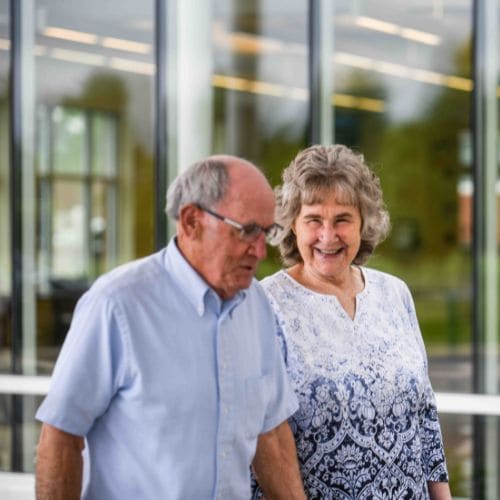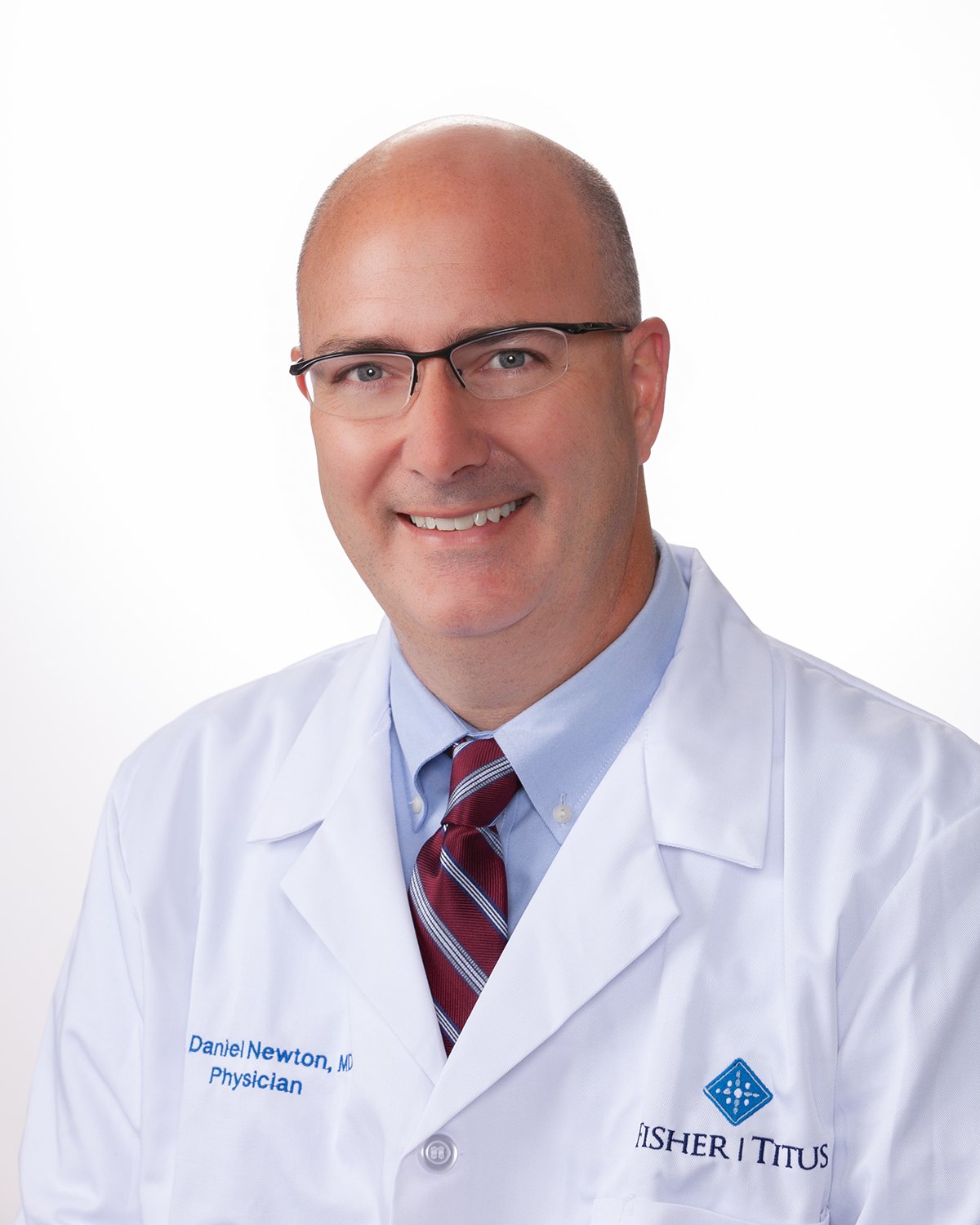We Help Mend Broken Hearts: Charlotte's Story
It was a regular day with nothing seemingly out of the ordinary when Charlotte and her husband, Willard, ventured out for their morning walk at the park. However, this walk was about to take an unexpected twist that would impact Charlotte and her husband’s lives forever.
“We’ve always walked a lot,” said Charlotte. “So, it was like any other day. We just went out to take our walk, and I felt good. I wasn’t tired. I wasn’t short of breath. We finished our walk, backed out of the parking lot, and my chest started burning.”

Unknown to Charlotte at the time, her main artery was 100% blocked causing her to begin having a heart attack.
“At first, I didn’t know what was happening. It kept getting worse and worse. It was a ten-minute drive to back our house. When we got home, I went in and laid down on the couch,” recounted Charlotte. “By that time, it was burning all the way up my throat, and my arm started hurting. So, my husband called 9-1-1, and I made him hang up. They called right back and sent EMS.”
Having maintained a healthy lifestyle throughout her life, Charlotte, a 77-year-old resident of Greenwich, never thought she would experience a heart attack and, like most people experiencing heart attack symptoms, brushed them off, expecting them to subside with some rest. Luckily, cardiologist, Dr. Daniel Newton and his team at the Synder/White Heart & Vascular Center at Fisher-Titus were ready and waiting for Charlotte when she arrived.
“We had a STEMI called from the field, which means someone is having chest pain out in their home or in the field,” said Dr. Newton. “The squad was called, and they did an EKG right there at her house and found that she was having a heart attack. They radioed that in and sent in the EKG. We confirmed that, which is extremely helpful. So we knew right away that the person was having a heart attack and mobilized our the lab immediately, even before she got here.”
The cardiovascular team in the heart center consists of a cardiologist, registered nurse, circulator, documenter, and scrub tech.
Mobilizing the cath lab before the patient arrives allows the cardiovascular team to prepare anticipated medications, prep for chest x-rays, and clear the lab for the incoming patient. The mobile EKG program has been instituted in many heart centers across the United States over the last several years to help notify cardiovascular teams of incoming heart attacks. This program helps decrease the amount of time a patient is experiencing a heart attack versus waiting to come to the Emergency Room, then getting an EKG, which is the trigger by which cath labs are typically activated for an emergency angioplasty.
“With this patient, we actually broke our door-to-balloon time because we were forewarned about her heart attack out in the field,” recalled Dr. Newton. “We were able to get her to the cath lab emergently and open up the artery, at that point, in record time.”
 During a heart attack, time is heart muscle. The sooner the team can intervene, the less damage is done to the heart. The door-to-balloon time national average is 65 minutes. It took the cardiovascular team only 23 minutes to get the balloon inflated in her artery from the moment Charlotte passed through the door. Since then, the record has been broken again with a new door-to-balloon time of 20 minutes. Each case provides the team an opportunity to fine-tune certain parts of the process to be even faster for our patients so they can be confident they are receiving great care right here in their own community.
During a heart attack, time is heart muscle. The sooner the team can intervene, the less damage is done to the heart. The door-to-balloon time national average is 65 minutes. It took the cardiovascular team only 23 minutes to get the balloon inflated in her artery from the moment Charlotte passed through the door. Since then, the record has been broken again with a new door-to-balloon time of 20 minutes. Each case provides the team an opportunity to fine-tune certain parts of the process to be even faster for our patients so they can be confident they are receiving great care right here in their own community.
“I was really calm. I was never nervous or scared. I just felt like I was going to be okay,” said Charlotte. “They were great. When I arrived, and they unloaded me, the doctor and 8 to 10 people were standing there waiting… As soon as they got me in the little room, they all started working on me, and it was like each one knew exactly what they were supposed to do. They all just did their thing, and in what seemed like 2 or 3 minutes, they were on our way to the procedure room with me. When I was there, one of the nurses told me to not be scared because they were working so fast. They always work like that.”
When a STEMI is activated, it is paged overheard in the medical center. The patient is brought into the emergency department where the team, which is made up of ER staff, nurses, doctors and the cardiovascular team, is ready and waiting.
“We work as a unified force, as a unified team. Almost like an Indy pitstop,” explained Dr. Newton. “Where everyone is working together for one goal, for one purpose, and that’s to save the patient’s life.”
Since February 14, 2019, Fisher-Titus has been designated as a Level II Adult Cardiac Catheterization Laboratory by the Ohio Department of Health. This designation means that Fisher-Titus can do interventional catheterization procedures in addition to the diagnostic ones they have been doing since the Snyder/White Heart & Vascular Center opened in 2009. With recent donor support through the Fisher-Titus Foundation, the medical center has been able to renovate Cath Lab 1 and Cath Lab 2 with new, state-of-the-art technology.
“Being able to help patients during a heart attack is a very rewarding experience because you assist the patient in intercepting what is a life-threatening situation,” said Dr. Newton. “And when you do that, not only the patient, but the whole team celebrates that. It was extra rewarding for her case because, although at the time we did not know this, she was the mother of our director of laboratory services, which made it even more meaningful to myself and the cath lab team.”
After the procedure, Charlotte was released from the hospital and able to return home. With some outpatient cardiac rehab, she and her husband are able to return to doing the things they love, including their routine walks in the park.
“I can’t thank Fisher-Titus enough for giving me a second chance and letting me be with my family,” said Charlotte. “The cardiovascular team at Fisher-Titus was great.”
The Fisher-Titus Heart and Vascular Team is dedicated to providing highly experienced cardiovascular knowledge, expertise, and care. To schedule an appointment with one of our heart and vascular experts, call (419) 660-4707 or visit fishertitus.org/heart for more information.